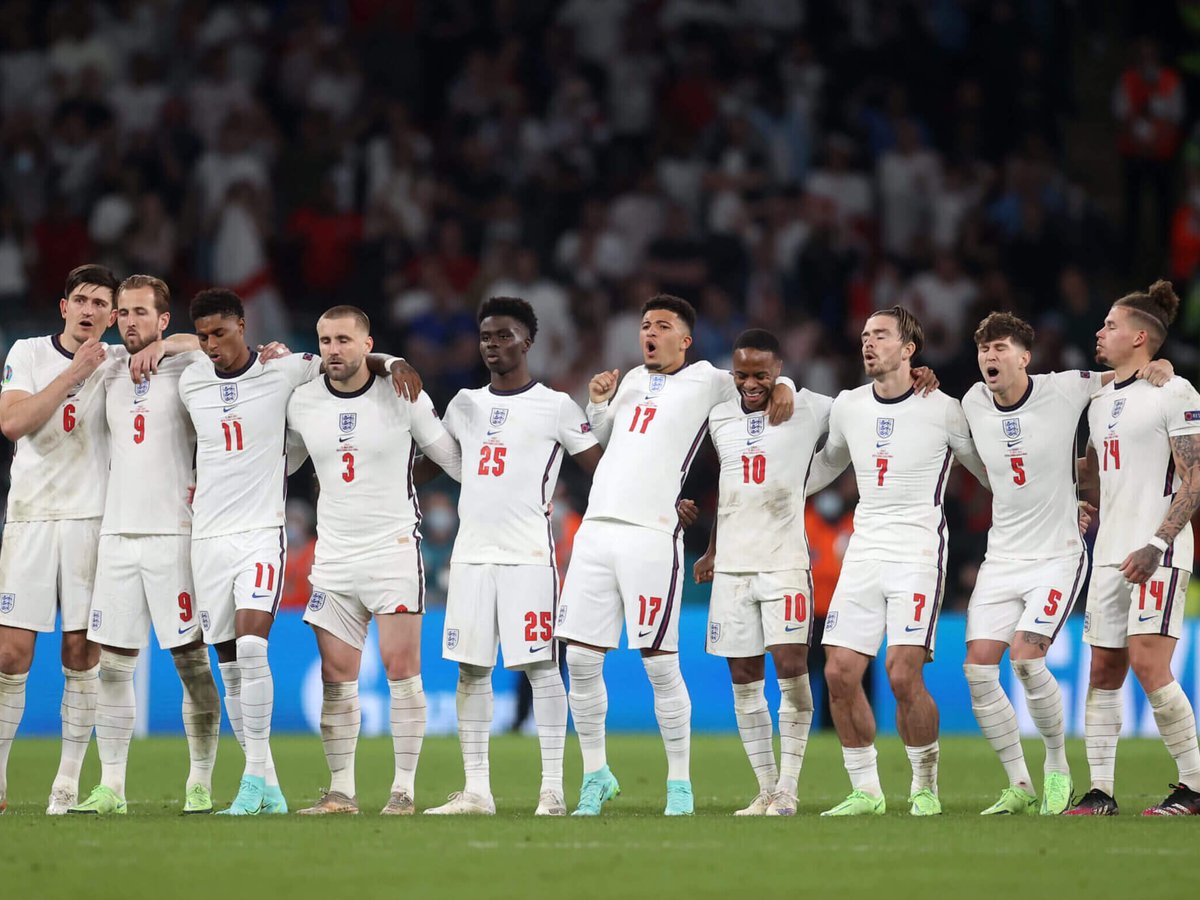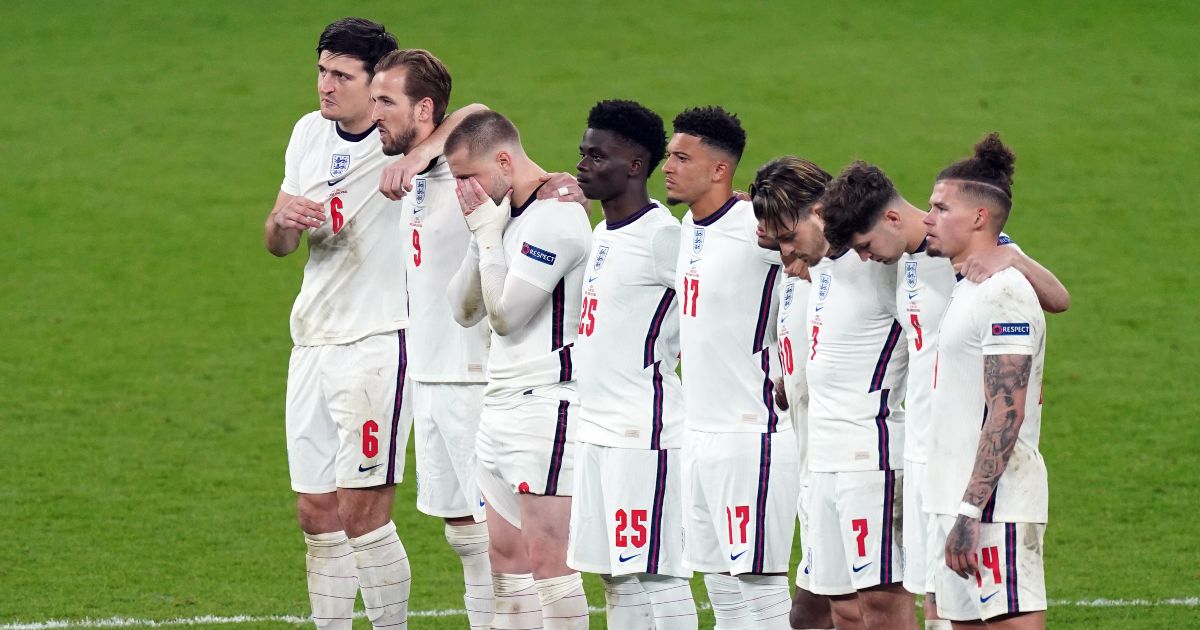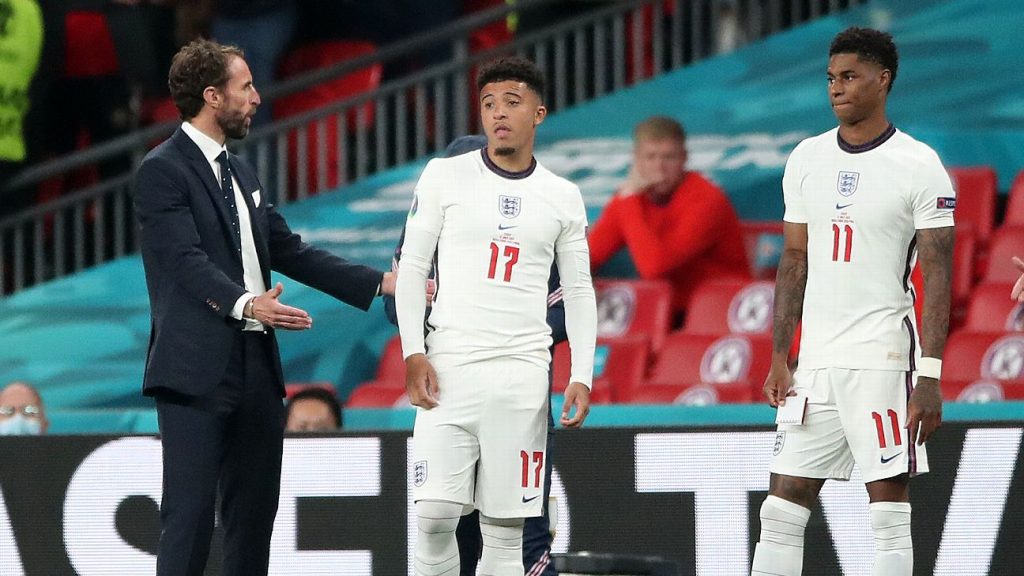Football, or soccer, is a sport beloved by people all over the world. And for many countries, the ultimate goal is to win the FIFA World Cup, considered the pinnacle of success in international football tournaments. One such country that has been chasing this dream for decades is England. With a rich football history and passionate fans, the English national team has always been considered a favorite to win major tournaments.
However, despite having a talented pool of players and high expectations, England has failed to live up to its potential in recent years. This has led to some major disappointments, including being eliminated from the FIFA World Cup in 2018 after losing on penalties to Colombia. But what exactly is the penalty for the England football team’s failure? In this article, we will take a deep dive into the consequences of underwhelming performances by the England national team.
Overview of England’s Football History
Before diving into the penalties for England’s football team, it is essential to understand the context of their performances. The England national football team, also known as the Three Lions, was founded in 1872 and is one of the oldest national teams in the world. They have won just one FIFA World Cup in 1966, which remains their only major international trophy to date.
Over the years, England has had a mixed record in international tournaments, with some highs and lows. Their most significant successes came in the 1990s when they reached the semi-finals of the FIFA World Cup in 1990 and the UEFA European Championship in 1996. However, since then, England has struggled to replicate that success, with frequent early exits in major tournaments.

Despite having a strong domestic league, the English Premier League, with top clubs like Manchester United, Liverpool, and Chelsea, the England national team has not been able to translate that success onto the international stage. This has led to intense scrutiny and criticism from fans and media alike, making the penalty for failure even more severe.
Financial Consequences of Failure
One of the most significant penalties for England’s football team is the financial loss incurred due to underwhelming performances in major tournaments. For a country with a strong economy and a high-profile league, the English Football Association (FA) invests a significant amount of money in developing and supporting their national team.
In 2017, the FA announced a record revenue of £351 million, thanks mainly to their lucrative broadcasting rights deal with the Premier League. Of this amount, the FA invested £124 million into the England national teams, including men’s, women’s, youth, and disability teams. The investment includes coaches’ salaries, training facilities, travel expenses, and various other costs associated with running a top-level football program.

One of the major consequences for England’s football team is the financial impact caused by disappointing performances in major tournaments
But where does the money come from? A significant chunk of the FA’s revenue comes from sponsorships and broadcast deals related to the national team. These deals are highly dependent on England’s performance in major tournaments, and a lackluster showing can result in significant losses. For example, after England’s early exit in the 2014 FIFA World Cup, the FA’s income dropped by almost £20 million.
Moreover, England’s failure to qualify for the UEFA European Championship in 2008 resulted in a reported £15 million loss in revenue. This is because sponsors and broadcasters pay a premium to associate themselves with successful teams, and when England fails to deliver, it affects their bottom line. Therefore, the financial penalty for England’s football team’s failure is not just limited to the FA but also impacts the entire football industry in the country.
Impact on Player Salaries
Apart from the financial implications for the FA, the players themselves also face consequences in terms of their earnings. Top-level footballers in England are among the highest-paid athletes in the world, with some earning millions of pounds a year. However, their salaries are heavily tied to their performances on the field, and failure on the international stage can lead to a significant drop in earnings.
For example, after England’s poor showing at the 2018 FIFA World Cup, where they failed to reach the semi-finals despite high expectations, several players saw a reduction in their wages. This was due to clauses in their contracts that linked their earnings to the team’s performance. And it’s not just the national team players who face this penalty; club players also see a drop in their endorsements and sponsorship deals if England fails to live up to expectations.
Loss of Sponsorships
Apart from broadcast deals and player salaries, sponsorships are a significant source of revenue for football teams and associations. And when it comes to England’s national team, there is no shortage of big-name sponsors looking to associate themselves with one of the biggest brands in football.
However, failure on the pitch has led to several sponsors pulling out or renegotiating their deals. For example, after the 2014 World Cup, England’s primary shirt sponsor since 2006, Umbro, decided not to renew their contract. Instead, they were replaced by Nike, who offered a significantly lower contract value than Umbro.
Moreover, failed qualifying campaigns also result in missed opportunities for new sponsorship deals, as many companies want to be associated with successful teams. This is evident in the FA’s struggle to find a replacement for Vauxhall, who ended their seven-year sponsorship deal with England in 2017 after the team’s poor performance at the UEFA Euro 2016.
Reputation Damage
Apart from the financial losses incurred due to failure, there is also a significant impact on the reputation of the England national team. As mentioned earlier, football is a sport loved by people all over the world, and major international tournaments like the FIFA World Cup and UEFA European Championship attract billions of viewers worldwide.
As such, the success or failure of a national team is heavily scrutinized by fans, media, and other stakeholders. And when a team with high expectations fails to deliver, it can have severe repercussions on their reputation. For England, this has been a constant struggle in recent years, with several underwhelming performances leading to a decline in their global standing.

One of the most significant blows to England’s reputation came after their exit from the 2018 FIFA World Cup at the hands of Colombia. The English media and fans were quick to point fingers and lay blame for the defeat, resulting in a negative portrayal of the team both domestically and internationally. This not only affects the morale of the players but also makes it difficult for them to gain support and backing from their own country.
Mental and Emotional Impact
Football, like any other sport, requires a great deal of mental and emotional strength to be successful. And when it comes to international tournaments, the pressure on players is immense, especially for a team like England with high expectations. However, the frequent failures in major tournaments have taken a toll on the players, affecting their psyche and overall performance.
The fear of failure and the constant criticism from fans and media can result in a lack of confidence and self-belief. This, in turn, can lead to poor performances on the field, further perpetuating the cycle of disappointment and lowered expectations from fans and sponsors. Moreover, players who are unable to handle the pressure may decide to retire from international football altogether, resulting in a loss of talent for the national team.
Role of Penalties and Mental Strength
One aspect of England’s failures that often comes under scrutiny is their performance in penalty shoot-outs – a form of tie-breaker used in football matches with no clear winner after regular time and extra time. England has had a dismal record in penalty shoot-outs, with just one victory out of eight attempts in major tournaments.
This has led to a narrative that England lacks mental strength and the ability to handle high-pressure situations. And while it is difficult to quantify this claim, there is no denying that repeated failures in penalty shoot-outs can have a significant impact on players’ mental and emotional well-being. This, in turn, affects their performance on the field and makes it challenging for them to overcome setbacks and achieve success.
Impact on Future Generations
The penalties for England’s football team’s failure go beyond financial losses and damaged reputation; they also have a long-term impact on future generations of players. As mentioned earlier, football is a popular sport in England, with thousands of young children dreaming of one day representing their country at the highest level.
However, when a national team fails to live up to expectations consistently, it can lead to disillusionment among these young players. The lack of role models and a sense of hopelessness can result in talented individuals choosing other sports or even giving up on their passion for football altogether. This not only affects the national team’s pool of talent but also impacts the overall quality of football in the country.
Moreover, the constant scrutiny and criticism from fans and media can also make it challenging for young players to develop and improve their skills without fear of failure. This can result in a lack of creativity and free expression on the field, leading to a reduction in the overall quality of play.
Efforts to Improve Youth Development
Recognizing the potential long-term consequences of failure, various initiatives have been taken to improve youth development in England. For example, the FA has implemented a new coaching system called “DNA,” which stands for Develop, Nurture, and Achieve. This system aims to provide young players with the necessary skills and support to reach their full potential and represent England at the highest level.
Furthermore, top clubs in the Premier League have also taken steps to improve youth development, with most teams now having well-established academies and scouting systems. These efforts aim to ensure that talented players are identified and given the necessary resources to develop their skills and potentially represent England in the future.
Conclusion: A Never-Ending Cycle
In conclusion, it is evident that there are significant penalties for England’s football team’s failure. From financial losses and damaged reputation to long-term effects on future generations, the consequences are far-reaching and can have a severe impact on the country’s football ecosystem. However, these penalties only serve to perpetuate a never-ending cycle of high expectations, disappointment, and scrutiny for the England national team.
As fans, we must understand that football, like any other sport, is unpredictable, and success cannot be guaranteed. While it is essential to hold our teams and players accountable, we must also remember to show support and encouragement during tough times. After all, it is the love and passion for the game that brings us all together, and no penalty or failure should ever take that away from us.


